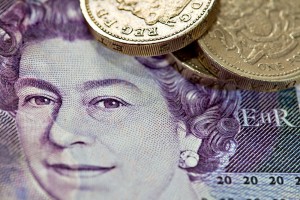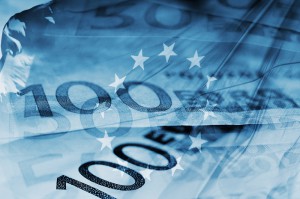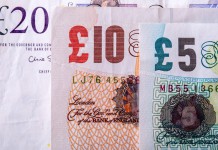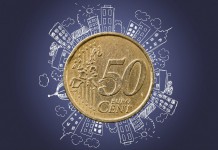Data turning supportive for the currency
 Despite a lack of a package of fiscal reform and economic stimulus, the U.S. economy is starting to perform at close to trend for this stage of the economic cycle. Jobs data has started to pick up and sentiment indexes are pointing to an improved outlook. Yesterdays release of final GDP data for the second quarter also sprang a surprise. The original release was expected to be upgraded from 2.6% to 2.7% so the eventual 3% read brought a shock to the market.
Despite a lack of a package of fiscal reform and economic stimulus, the U.S. economy is starting to perform at close to trend for this stage of the economic cycle. Jobs data has started to pick up and sentiment indexes are pointing to an improved outlook. Yesterdays release of final GDP data for the second quarter also sprang a surprise. The original release was expected to be upgraded from 2.6% to 2.7% so the eventual 3% read brought a shock to the market.
Liquidity is such that the dollar buying , or at least the liquidation of short positions, only led the Euro fall by 0.7% but it allowed traders to renew expectation for a rate hike in December.
The ADP report on private sector employment also brought a surprise rising to 237k its strongest for five months.
All this positivity bodes well for tomorrow’s nonfarm payrolls report so it would now be a massive disappointment were there to be a revision lower for the July number and a below expectation report for August.
The 1.2000 level still remains strong resistance for the common currency and it is likely that a deeper correction will be necessary for a sustained assault on that level to be successful.
Sterling facing economic woes as Brexit concerns priced in.
 The fact that the U.K. is leaving the EU and the probable final consequences of that are, or at least should, now be fully priced into the value of the pound. However, the economic consequences of how that departure will happen are still a major driver for the currency.
The fact that the U.K. is leaving the EU and the probable final consequences of that are, or at least should, now be fully priced into the value of the pound. However, the economic consequences of how that departure will happen are still a major driver for the currency.
The sense of exasperation over the UK’s negotiating stance being felt by the EU is spilling over to traders who are unsure about just about every aspect of Brexit other than the effect it is having on the economy.
Despite the Euro’s fall yesterday following upbeat U.S. data, the pound has only gained very slightly against the common currency reflecting that anxiety. The underlying lack of economic activity most profoundly seen in business investment is leading to a stark vision of the U.K. for some time to come.
Parliament returns from its summer recess next week and with the Conservative Party Conference looming, further political upheaval can be expected. Theresa May, the Prime Minister on a trip to Japan commented about her determination to remain in power and to fight the next General Election. Some of her colleagues may have a different view!
Euro correction wrongly attributed to ECB
 Mario Draghi, the ECB President sees the value of the Euro as a consequence of monetary policy, improving economic sentiment and the general political stability being seen in the region. In other words currency’s strength is something he cannot control so doesn’t trouble himself with.
Mario Draghi, the ECB President sees the value of the Euro as a consequence of monetary policy, improving economic sentiment and the general political stability being seen in the region. In other words currency’s strength is something he cannot control so doesn’t trouble himself with.
Traders on the other hand put two and two together following yesterdays correction and came up with ECB dissatisfaction with the currency’s level which could start to harm exports. Having risen from 1.0380 to close to 1.2000 it is likely that most of the potential damage has already been done.
Mario Draghi the ECB President has be careful not to mention the common currency recently leaving it to his Council colleagues to express the shared view.
The outlook for for the Eurozone remains positive and the sentiment indices released yesterday reflect that positivity. The strength of the currency will start to weigh upon exports, particularly from the weaker economy but in much the same way as Germany had to live with the inflationary outcome of a weaker currency so it is the turn of those that benefitted then to suffer now. Such is the consequence of trying to create monetary policy for nineteen diverse economies.
















